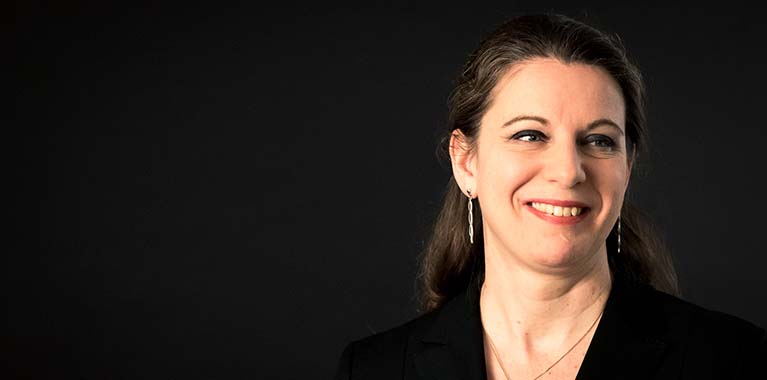Deliveroo riders do not fall within scope of trade union rights

The Supreme Court recently handed down its judgment in the case of Independent Workers Union of Great Britain v Central Arbitration Committee and another ruling that the lack of an "employment relationship" between Deliveroo and their riders meant that they do not have a right to form and join a trade union under Article 11 of the European Convention on Human Rights ("ECHR").
Was there an employment relationship?
Article 11 of the ECHR provides rights on the freedom of assembly and association including forming and joining trade unions. In the current case the Supreme Court needed to consider whether the Deliveroo riders fall within the scope of this right – and are able to join and be represented by a trade union. One of the key questions that required examination was whether the Deliveroo riders are in an "employment relationship" with Deliveroo.
The Supreme Court agreed with the analysis of the lower courts and the Central Arbitration Committee (the "CAC") on determining an employment relationship, which correctly focussed on the power to appoint a substitute (i.e. to appoint another individual to carry out services if the particular worker is unavailable). It held that a rider's power to appoint a substitute is "virtually unfettered" and not limited to other Deliveroo riders. The concept of personal service is one of the key factors pointing towards an employment relationship, and a genuine right of substitution counters this. The Supreme Court held that in this case "such a broad power of substitution is, on its face, totally inconsistent with the existence of an obligation to provide personal service which is essential to the existence of an employment relationship within article 11".
However, when determining an employment relationship one should not only look for a contractual right of substitution but what actually happens in practice. The Supreme Court was satisfied that the CAC rigorously scrutinised the substance of the relationship between Deliveroo and their riders, to reflect the reality of the relationship. Particularly significant were the following findings of the CAC:
- It found that there was no policing by Deliveroo of a rider’s use of a substitute and riders would not be criticised or sanctioned for using a substitute given the purported freedom to do so.
- It found that, despite Deliveroo’s right of termination on one week’s notice for any reason, it did not terminate fee per delivery contracts for a rider’s failure to accept a certain percentage of orders or failure to make themselves sufficiently available.
- It found that Deliveroo did not object to the practice of substitution by a rider for profit, nor did it object to riders or substitutes who were working simultaneously for competitors of Deliveroo.
In light of the above, the Supreme Court held that in all the circumstances, the CAC was entitled to conclude that the contractual provisions genuinely reflected the true relationship.
The Supreme Court held that whilst this right of substitution was sufficient to determine that there was no employment relationship, there were further indicators, as identified in the International Labour Organisation guidance, which taken in conjunction with the right of substitution, further supported the conclusion that there was no employment relationship. These were that:
- Riders do not have to carry out any deliveries at all.
- Riders do not work within specific working hours. They operate if and when they choose.
- Their place of work is not specified or agreed. They operate where they choose within their specified zone.
- Their activity is not of a particular duration, nor does it have a certain continuity. Riders start and stop when they choose.
- They are not required to be available.
- As regards tools, materials and machinery, all equipment is at the rider's expense. Riders use their own cycles and mobile phones.
- There is no periodic payment. Remuneration depends on whether riders choose to make deliveries and how many they make.
- Deliveries are not necessarily or typically their sole or principal source of income. Even where they are, a goodly proportion may be earned from work for Deliveroo’s direct competitors, potentially by undertaking the competitor’s work in preference.
- There is no payment in kind such as food, lodging and transport.
- There is no entitlement to weekly rest and annual holidays.
- There is no reimbursement for the cost of travel.
- There is no protection from financial risk for riders, whether in the form of insurance, guaranteed earnings or otherwise.
Riders are thus free to reject offers of work, to make themselves unavailable and to undertake work for competitors.
The Supreme Court held that these features are fundamentally inconsistent with any notion of an employment relationship and accordingly Deliveroo riders do not fall within the scope of an employment relationship within Article 11. Accordingly, the rights conferred by that article to join and to be represented by a trade union are not conferred on the Deliveroo riders.
Takeaways
This judgment reinforces that the right to form and join a trade union under Article 11 of the ECHR is limited to those who have an employment relationship. It also emphasises the importance of the "right of substitution" factor when determining employment status and provides a helpful analysis of the other factors outlined by the International Labour Organisation that may be taken into account when making such a determination. This could be particularly useful for companies engaging individuals, especially those in the gig economy.
Whilst this alert focusses on the employment status elements of the case, the judgment is also helpful in confirming who has trade union rights under Article 11 of the ECHR and that the Supreme Court considers that Article 11 does not create any right to compulsory collective bargaining. However, as the Supreme Court points out, there may be evolution in this area in the future and so companies should keep abreast of any case law developments that change this landscape.
If you have any questions please contact Anne Pritam, Leanne Raven or your usual Stephenson Harwood contact.



